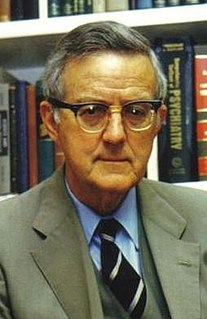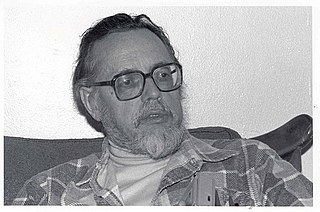A Quote by Stephen Hawking
Scientists tend to risk theories they admire
Quote Topics
Related Quotes
Difficulties arise when reported observations seem to conflict with 'facts' that the majority of scientists accept as established and immutable. Scientists tend to reject conflicting observations.....Nevertheless, the history of science shows that new observations and theories can eventually prevail.
Methodological naturalism gives advice to scientists about what they should include in their theories. There is a second type of methodological naturalism that gives advice to philosophers, which I call "methodological naturalismp." It says that the methods that philosophers should use in assessing philosophical theories are limited to the methods that scientists ought to use in assessing scientific theories.
Facts and theories are different things, not rungs in a hierarchy of increasing certainty. Facts are the world's data. Theories are structures of ideas that explain and interpret facts. Facts do not go away while scientists debate rival theories for explaining them. Einstein's theory of gravitation replaced Newton's, but apples did not suspend themselves in mid-air pending the outcome.
The church seeks to help form people who can risk being peaceful in a violent world, risk being kind in a competitive world, risk being faithful in an age of cynicism, risk being gentle among those who admire the tough, risk love when it may not be returned, because we have the confidence that in Christ we have been reborn into a new reality.
The scientists from Franklin to Morse were clear thinkers and did not produce erroneous theories. The scientists of today think deeply instead of clearly. One must be sane to think clearly, but one can think deeply and be quite insane. Today's scientists have substituted mathematics for experiments, and they wander off through equation after equation, and eventually build a structure which has no relation to reality.
There are many examples of old, incorrect theories that stubbornly persisted, sustained only by the prestige of foolish but well-connected scientists... Many of these theories have been killed off only when some decisive experiment exposed their incorrectness... Thus the yeoman work in any science, and especially physics, is done by the experimentalist, who must keep the theoreticians honest.
It is rational to choose the right means to your ends to develop very elegant abstract formal theories of rational choice, and then turn these into what look like moral theories. Philosophers tend to be ravished by the formal beauty of such theories, and they don't pay much attention to the fact that our human limitations make them pretty useless in practice, while the simple point about instrumental reasoning is too shallow to be of much real moral interest.
I want men to admire me, but that's a trick you learn at school--a movement of the eyes, a tone of voice, a touch of the hand on the shoulder or the head. If they think you admire them, they will admire you because of your good taste, and when they admire you, you have an illusion for a moment that there's something to admire.
I noticed affixed to a laboratory door the following words: "Les théories passent. Le Grenouille reste. [The theories pass. The frog remains.] &mdashJean Rostand, Carnets d'un biologiste." There is a risk that in the less severe discipline of criticism the result may turn out to be different; the theories will remain but the frog may disappear.




































